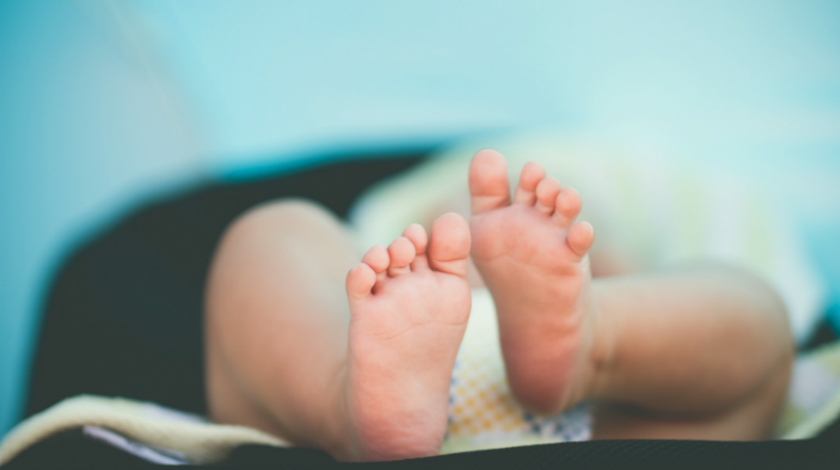Author:LULU Little Kitchen
Children falling ill is every parent’s biggest worry. My baby had a bit of a phlegmy cough earlier, experiencing shortness of breath and losing appetite for milk. He had to be admitted into the hospital before he turned one-month-old. He was first admitted to the pediatric department at Union Hospital, then he was referred to Prince of Wales Hospital. Since it was not clear at the beginning as to what was wrong with my baby, doctors stopped feeding him milk and put him on saline. Two types of antibiotics were given to him and blood was withdrawn afterwards. At the same time, doctors took samples of his spinal and nasal fluids in order to find out what was causing him sick.
I remember that evening when the call came. I was in a minibus, on my way to the hospital. I knew something was seriously wrong. My heart sank and I was on the verge of a breakdown when the nurse told me that respiratory syncytial virus (RSV) was found in my baby’s nasal cavity, and that he had to be transferred to a quarantine ward. I could not stop crying and was worried sick about my baby.
A highly-contagious respiratory illness
Since I knew nothing about RSV, I started researching it online so as to stop myself from thinking horrible thoughts. According to the Centre for Health Protection's data, RSV triggers respiratory diseases, e.g. infections in the trachea, lungs and the middle ear. It is the most common reason for lung infection in infants less than one-year-old. The virus mainly spreads through droplets or direct contact with the fecal matter of the infected. In retrospect, my daughter got sick first, followed by my husband. Then my baby started experiencing shortness of breath. It seemed highly likely that he caught the virus from within the family.
No vaccine for RSV
Doctors said there is no vaccine for RSV. And since my baby is too little, there is no medication to help him either. All we could rely on was his own immune system. The best that the doctors could do was to provide supportive treatment to relieve his symptoms. Therefore, when my baby started recovering, I started breastfeeding him, hoping to enhance his immune system with the antibodies in breast milk, and preventing him from getting infected again. After a while, my baby fully recovered. No more cough or phlegm. I am so glad that my baby never got a temperature or any complications from this whole episode. I can’t even begin to imagine if his little body ever got pneumonia, sinusitis or middle ear infection.
Being well-prepared is all that matters
Witnessing my baby get sick has got me thinking a lot. I have decided to take even more precautionary measures. The doctors have reminded us that the virus can survive for over six hours on any surface, therefore it is important to observe personal hygiene and to always keep our hands clean. Disinfecting toys and avoiding crowded places can also minimize the chance of an infection.
As a mother, I hope for a healthy life for all my children. But after what happened, I have come to realize good health should not be taken for granted. Sickness can come suddenly, catching you completely off guard. After some discussions, my husband and I have decided to choose a healthcare insurance plan that fits our children’s needs. That way, they will be able to receive the best treatments and protection even if they fall sick all of a sudden. And we will not have to worry as much.
Reference
© Cigna Healthcare 2023
Information provided in this article is intended for health and fitness purposes only and is not intended for use in the diagnosis of disease or other conditions, or in the cure, mitigation, treatment or prevention of disease (see Terms & Conditions for details). Any health-related information found in this article is available only for your interest and should not be treated as medical advice. Users should seek any medical advice from a physician, especially before self-diagnosing any ailment or embarking on any new lifestyle or exercise regime. Any information contained in this article may not be suitable, accurate, complete or reliable. Cigna Healthcare accepts no responsibility for the content or accuracy of information contained on external websites or resources, or for the security and safety of using them. "Cigna Healthcare" and the "Tree of Life" logo are registered trademarks of Cigna Intellectual Property, Inc. in the United States and elsewhere, licensed for use. All products and services are provided by or through operating subsidiaries, and not by The Cigna Group.




